Peggy, an open source furniture showcase
Published 16 January 2017 by DCALK (Paris/Bruxelles)
Through January 22, Constant in Brussels is exhibiting “(New) Objects in Common: Peggy” by the Libre Objet collective. Our DCALK columnists took the opportunity to introduce this open source furniture project for fablabs, which has just been published.
An active organization in arts, media and technology since 1997, in 2015 Constant launched “Constant_V”, a series of installations in the storefront window of its Brussels office. Each year showcases six or seven projects, which have in common (small) size, the idea of prototype (work-in-progress), collaboration and distribution (works made and distributed with open source software and licenses).
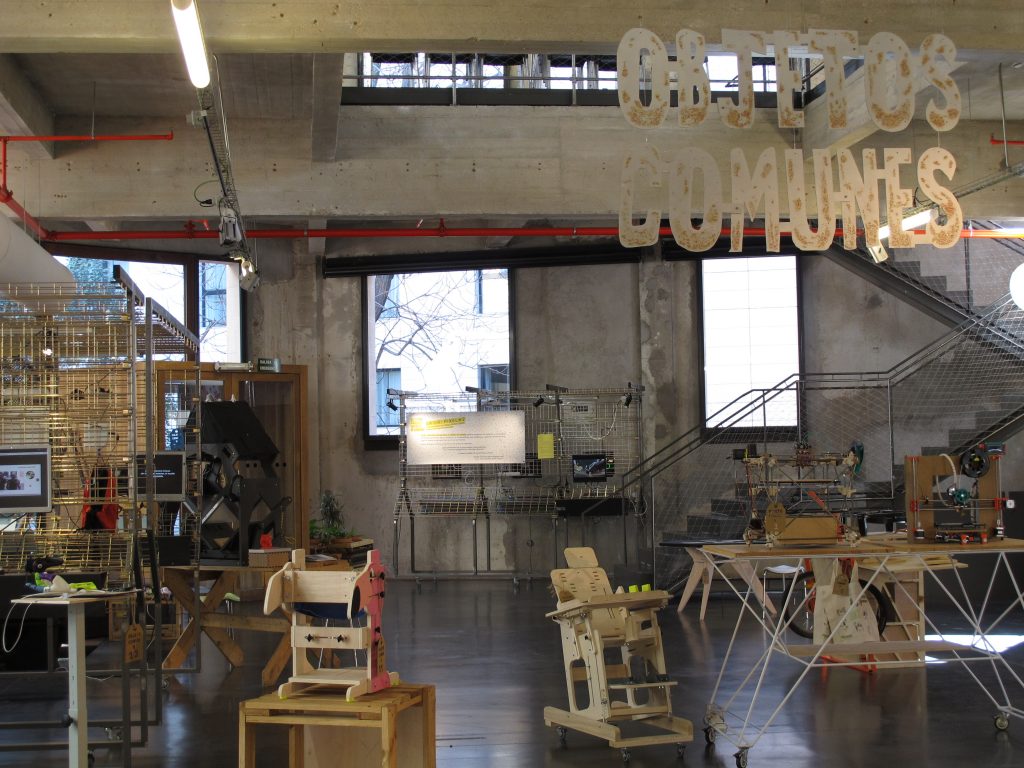
Ever since its launch, Constant has brought together a community of open source activists, in Belgium and beyond, around exploratory themes (Cqrrelation of data, Genderblending, etc)—much like “Objects in Common”, which mobilized makers, artists, designers and facilitators, from Brussels to Madrid to Dakar, and culminating in Peggy, both a family of objects and a “documentation-manifesto”.
Furniture kit
While furniture kits, especially bookshelves, have become a trend here and there—such as the Ideas Box by Libraries Without Borders, or Kit@lire, a digital bookshelf that goes into rural districts conceived by the Center for books and reading in Poitou-Charentes in France—, these institutional initiatives don’t necessarily come with an open notice. The question is, is this a condition (“open source spirit” and related practices) to guarantee the mobilization of a community, the project’s evolution and its sustainability?
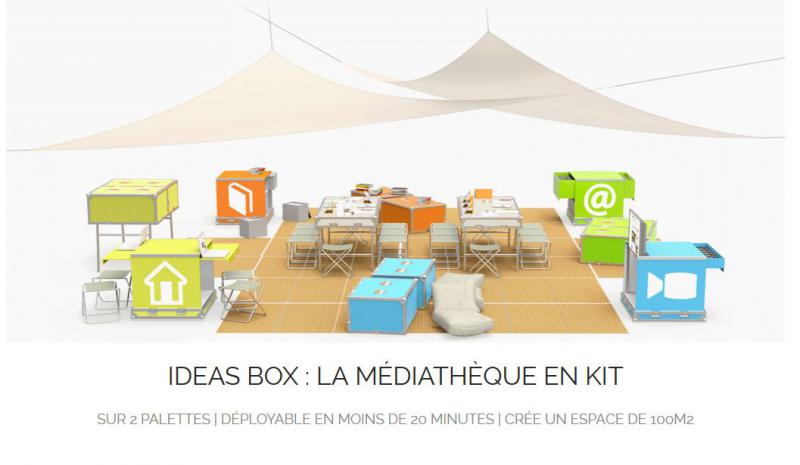
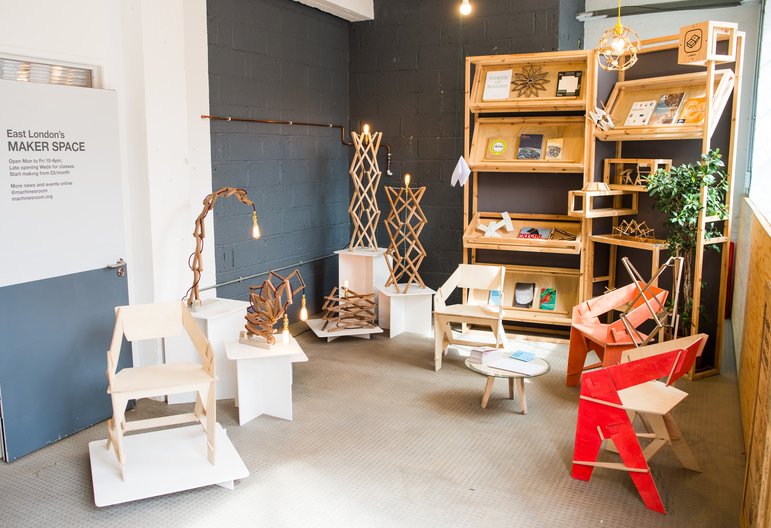
Take, for example, the Makerlibrary network (which we covered in French here), libraries developed among English-speaking makerspaces. Launched by the British Council, who commissioned designer Daniel Charny to produce a multifunctional piece of furniture based on the theme “Make, Read, Show”, the project distributed under a Creative Commons license is an invitation to reproduce the furniture and join the network. In fact, most of the spaces adapted the original furniture, without leaving much trace of new plans.
Reproduction, translation, bifurcation
The Peggy project takes us for a stroll through the diverse, complex and convivial local history of digital fabrication studios, when reproduction rhymes with translation and rubs shoulders with bifurcation. “At what moment does an object become an object in common? What does it mean to have an object in common?”
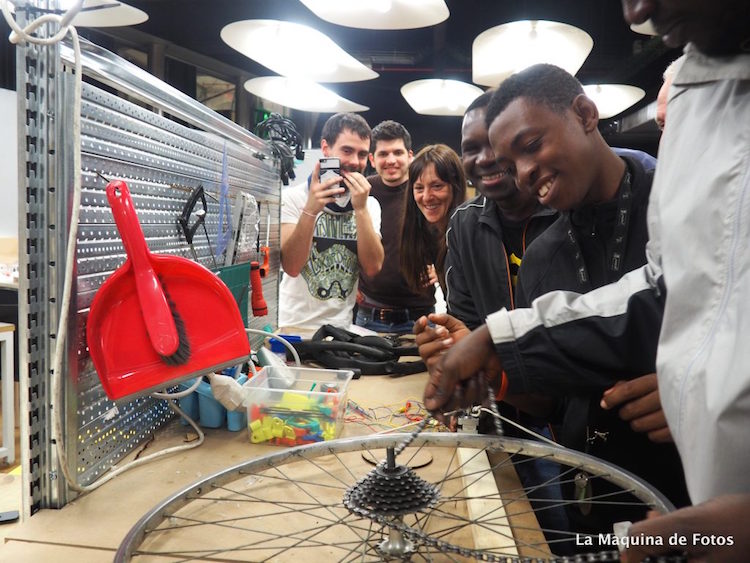
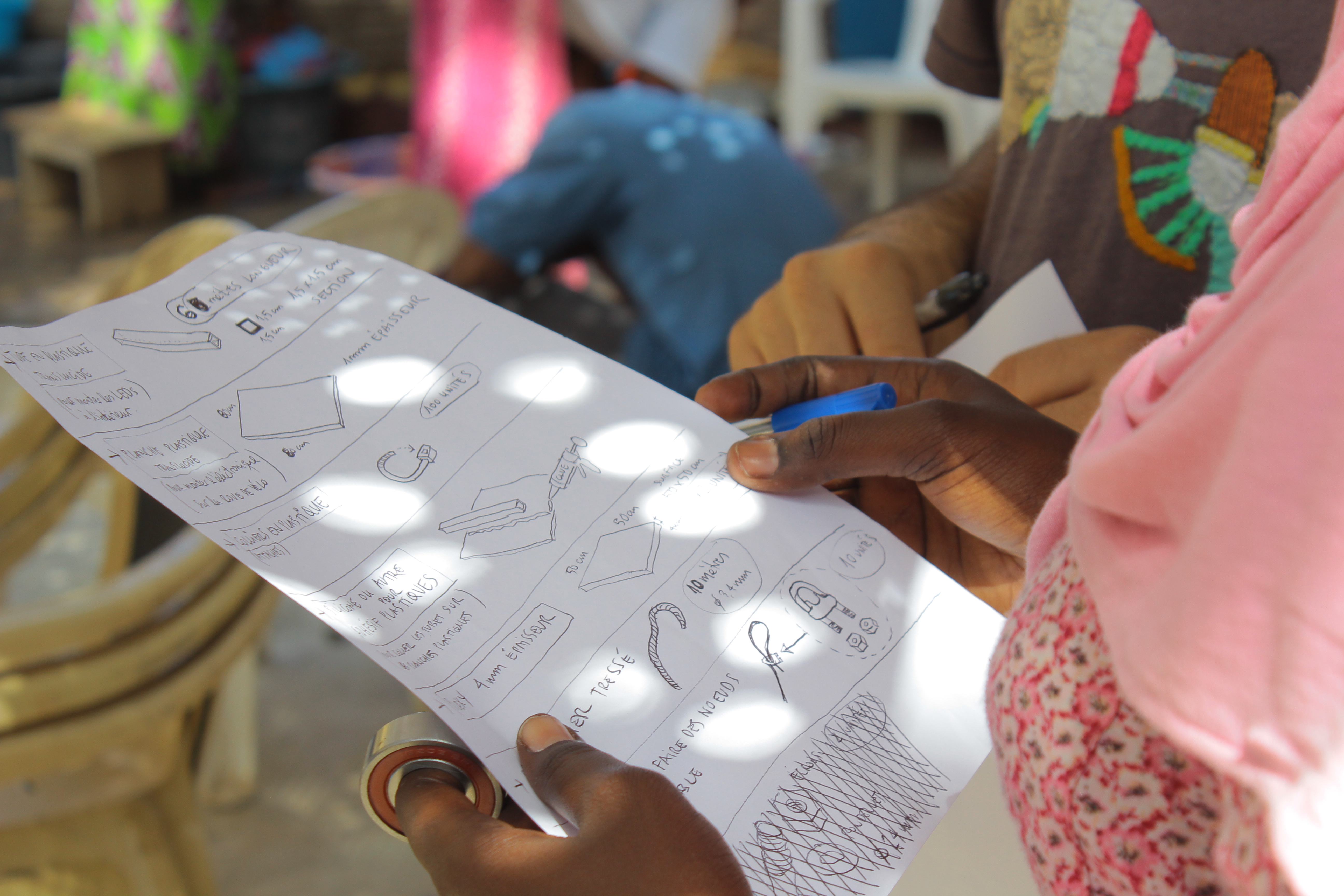
These questions were the starting point for participants from Africa and Europe who came together during work sessions at Medialab Prado in Madrid in 2016. This interculturality spiced up with collaborative sauce provided an ideal space for thinking and designing different versions of the same object, ajusted to one another’s realities (according to the lab’s floorspace, size of the machines, availability of equipment, etc).
Grigri color
Peggy’s starting point is the reappropriation of an open source furniture by Simon Ruaut, onto which is attached a pegboard, a mainstay of fablabs for hanging tools. Other objects, “diverted and derived”, also saw the light.

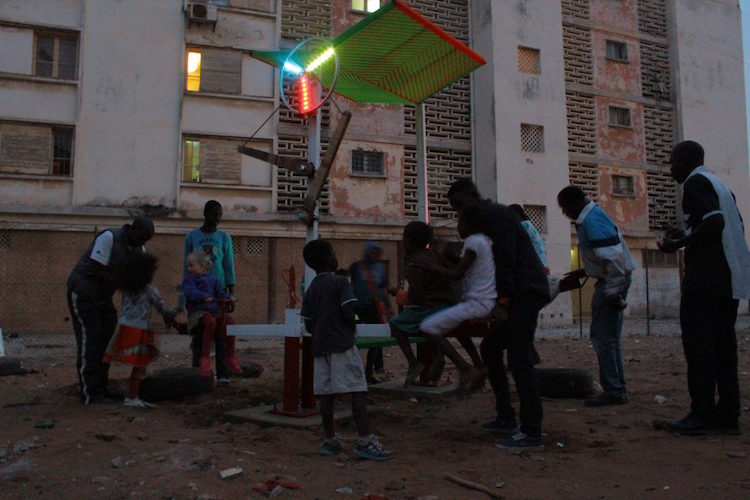
During the “Grigri pixel: makers and energy in African cities” residency, tinkerers from Dakar were invited to make grigris, or “collectively made objects that not only offer a service to the communities but also defend the common spaces in which they are placed, thanks to the story and the network that comes with them,” says Susana Moliner, curator and grigri sister with a big heart.
Doc, doc, doc
The plans for these projects (Peggy, Grigri Thiossane, Grigri Relax, Grigri Totem) are now distributed and accessible under a Cern Open Hardware v1.2 license through the book and the website of Libre Objet, collective author of the Peggy source files and a documentation generator. These hyperactive artisans are alternately contributors, instigators or authors of projects such as Flatshape (participative design platform), Non Pareil (customized design studio) and the Diverted Derived Design manual.
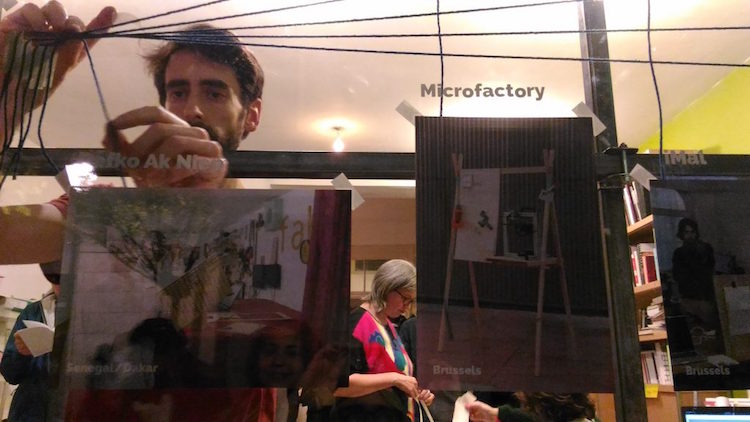
Peggy, an object in common is also a book published by Constant and available for free download. So we invite you to bust your “documentation budget” for the printed edition (5€). Not only will you have the pleasure of reading a Risographed (digitally duplicated) micro-edition, you will also discover spaces that are off the radar (even off the Makery map!), such as Fablab’ke, the new Belgian fablab in Molenbeek, or recycleries in Spain, as well as an inventory of sharing platforms and documentation tools. In short, 2017 is the year of documentation, abundant in predictions, year of librairies in fablabs…
Read previous columns by Dcalk, an organization that promotes games as cultural objects, and which in 2017 is continuing the adventure of its Ludobox project.
